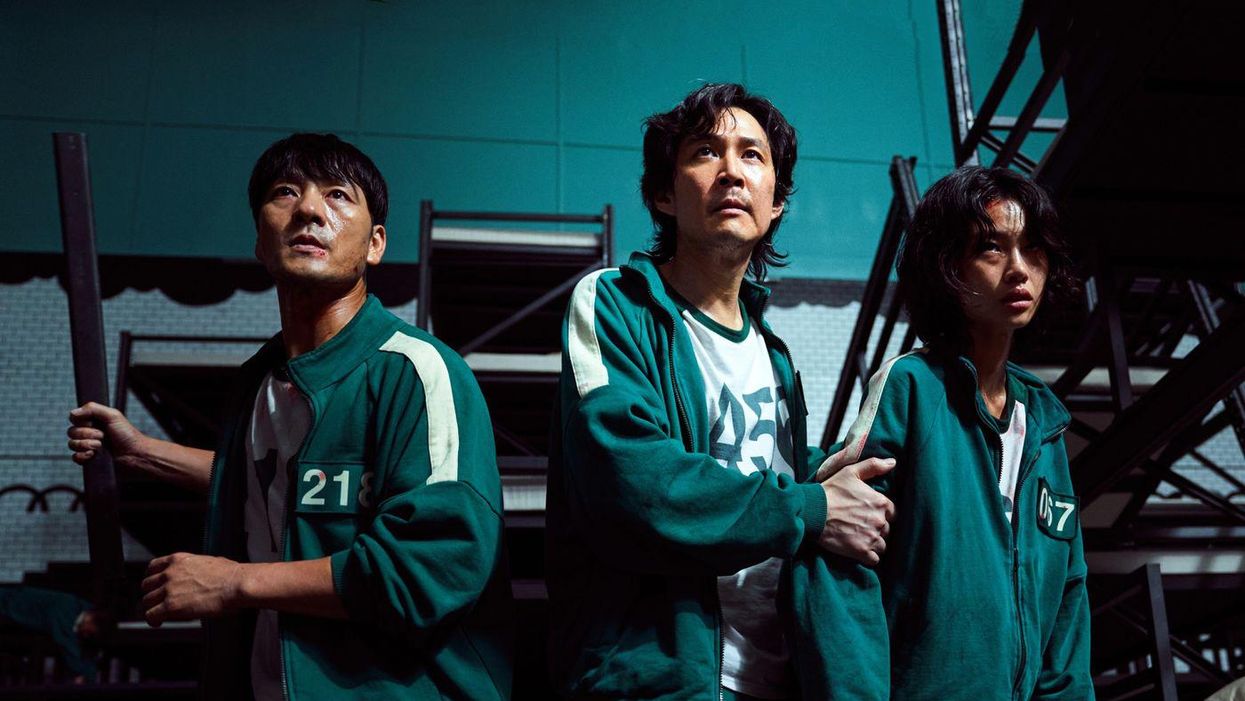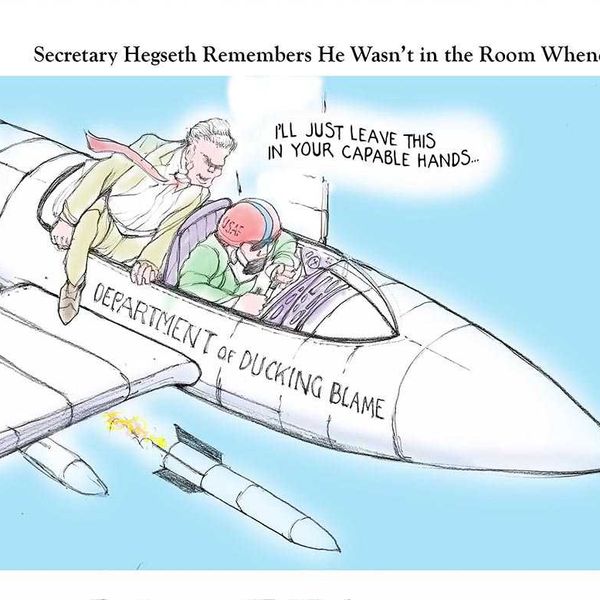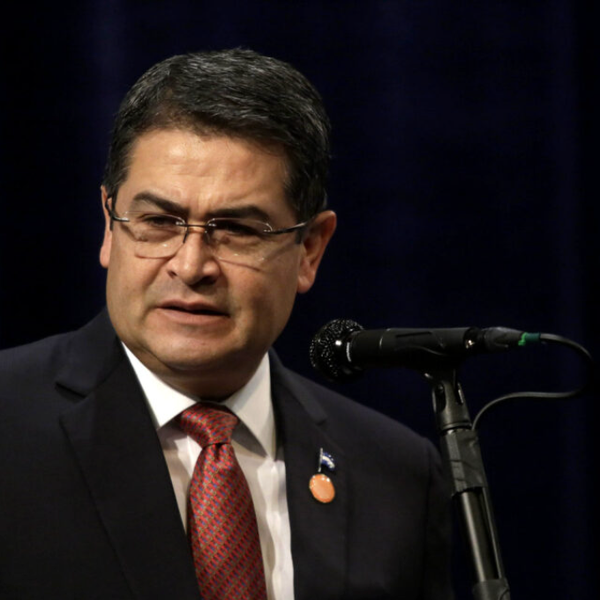'Squid Game' Invites Americans To Binge On More Human Korea
Reprinted with permission from Responsible Statecraft
The Treasury Department's nine-page "2021 Sanctions Review" released on Monday makes vague recommendations for "calibrating sanctions to mitigate unintended economic, political, and humanitarian impact." Unfortunately, it offers few tangible policy suggestions on how to end the high humanitariancost of sanctions on vulnerable populations in places like North Korea, where 40 percent of the population is undernourished and one-in-three households lack clean water.
That lack of concern about the well-being of populations in countries sanctioned by the United States should come as no real surprise. North Koreans are consistently dehumanized, caricatured, and parodied in U.S. popular media, a phenomenon that enables inflation of the national security risk posed by North Korea and serves to justify a brutal sanctions strategy against Pyongyang.
At a time of rising tensions on the Korean Peninsula, the Biden administration and Hollywood would do well to take a close look at how South Korea portrays its neighbor to the north of the 38th parallel, particularly in the South Korean produced-Netflix runaway hit, Squid Game. That's right, the show that casually murders nearly (no spoilers here!) every major character in depraved children's games as part of a bloody allegory about late-stage capitalism, economic inequality in Seoul, and the boredom experienced by global elites.
If that sounds disturbing, that's sort of the whole point. But the show is also noteworthy for its humanizing treatment of most of the major characters, including a North Korean, in a manner that Americans almost never witness.
Most American news coverage of North Korea revolves around its nuclear weapons program. Recent reports that Pyongyang tested a submarine-launched ballistic missile will likely consume American media's attention, with scant attention placed on the people who live there and what the current situation means for them. Images of missiles and soldiers marching will dominate news about this latest development, while human-centered stories about the North Korean people will neither be seen nor heard. The result is an American public that does not see North Korea as a country made up of people and interests but as a threat.
Squid Game chooses to focus on a more human side of North Korea with its character Kang Sae-byeok, played by Jung Ho-yeon. A North Korean defector to the South, she enters the game to earn money to support her younger brother (currently in a South Korean orphanage) and to pay exploitative brokers to smuggle her surviving family members out of North Korea. Her elder brother and grandparents died from a plague in North Korea when she was a child.
Korean-speaking Squid Game fans note that Sae-byeok conceals her North Korean accent when speaking to her South Korean competitors, only allowing her North Korean accent to come across when speaking to her little brother, presumably a defense mechanism to avoid discrimination that is common among North Koreans living in the South. Indeed, North Korean defectors in South Korea often face discrimination and live in poverty.
Kang's character is sympathetically portrayed as a struggling person trying to improve her life and that of her family, much like most of the Squid Game participants. And that's an enormous departure from how North Koreans are typically portrayed in the United States.
The examples are numerous but also, sadly, consistent. James Franco and Seth Rogen's 2014 film, "The Interview," focused on a parody caricature of Kim Jong Un who suffers a mental and physical breakdown after hearing "Firework" by Katy Perry. In "Team America," Trey Parker and Matt Stone's black-comedy-action critique of U.S. foreign policy, Kim Jong Il is secretly an alien cockroach.
And who could forget then-President Donald Trump's taunt at the 2017 U.N. General Assembly, where he said of Kim Jong Un: "Rocket Man is on a suicide mission"?
Of course, criticizing the Kim government does not necessarily reflect a disregard for the conditions of the North Korean people. The problem with these caricatures is that North Koreans, outside Kim Jong Un and other top political and military leaders, are often rendered invisible both by their own government as well as by the international community, including the United States. And the more North Korea is essentialized as Kim Jong Un, the less likely the outside world will view the country beyond Kim.
In recent years, humanitarian groups working with North Koreans on the ground have had modest success in shining light on the plight of vulnerable North Koreans, such as patients of highly infectious diseases such as multidrug-resistant tuberculosis. As Dr. KJ Seung of Partners In Health noted regarding the 2018 documentary, Out of Breath, "North Koreans are not robots like they are normally portrayed on TV or in print." Legislation, such as the Enhancing North Korea Humanitarian Assistance Act (H.R.1504/S.690), led by Senator Edward J. Markey (D-MA) and Congressman Andy Levin (D-MI), that would help expedite the delivery of lifesaving aid to North Koreans, have stalled in both the House and the Senate, and are unlikely to become law absent more support from relevant committee chairs.
Last Wednesday, Foreign Policy reported on a State Department cable making surface-level observations that Squid Game was a commentary on tensions in South Korean society and economic conditions. Perhaps if the State Department and Treasury Department looked a little deeper they might take another message. South Korean popular media — which, thanks to K-pop, K-dramas, films like Parasite and Snowpiercer, and other streaming megahits like Crash Landing On You — is producing humanizing and relatable portrayals of North Koreans.
Much of the U.S. sanctions strategy against North Korea is predicated on the theory that total capitulation to U.S. demands is the only acceptable outcome — even if ordinary citizens are harmed along the way. Perhaps if Washington and popular media treated North Korea as a country of people, rather than solely a security challenge, it would lead to a more humane policy and greater self-reflection on the impact of its policy on ordinary people.











